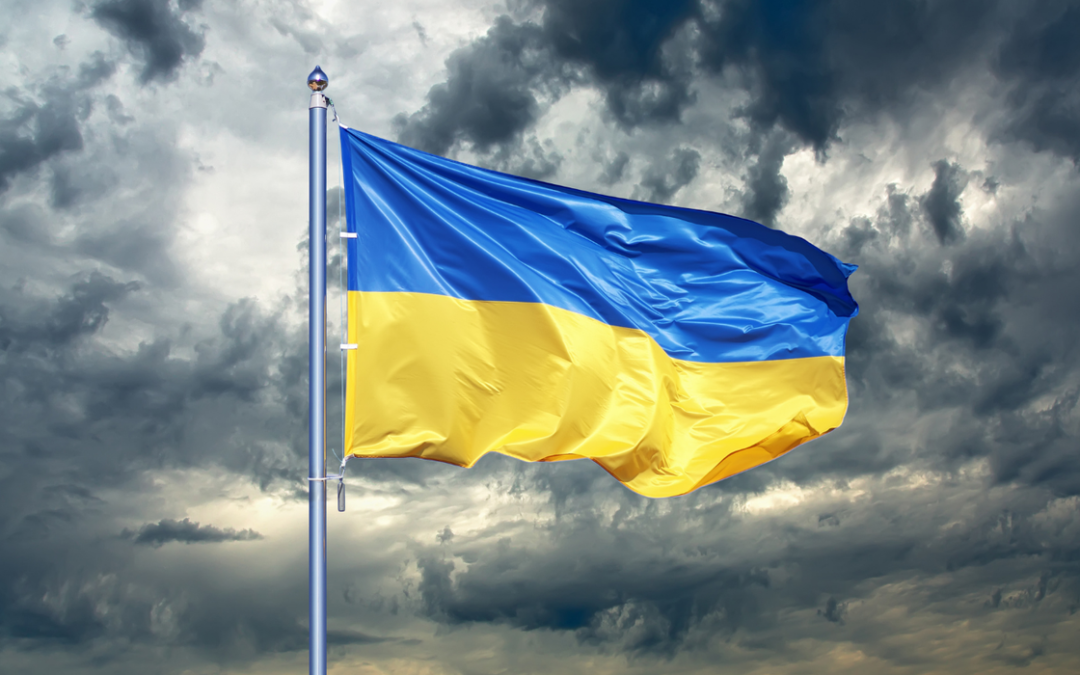John helpfully brings us back to scripture as we try and get our heads round the tragedy we see unfolding in Ukraine.
Whose side is God on? As we hear terrible war news, with no sign of stopping. it is natural to line ourselves up with Ukraine against Russia. There is so much wrong about the way Putin’s Russia has behaved that surely there is no other possibility. God must be on Ukraine’s side, and on ours.
But scripture gives us reason to pause. In Joshua 5:13-15 we read:
13 When Joshua was by Jericho, he lifted up his eyes and looked, and behold, a man was standing before him with his drawn sword in his hand. And Joshua went to him and said to him, “Are you for us, or for our adversaries?” 14 And he said, “No; but I am the commander of the army of the Lord. Now I have come.” And Joshua fell on his face to the earth and worshipped and said to him, “What does my lord say to his servant?” 15 And the commander of the Lord’s army said to Joshua, “Take off your sandals from your feet, for the place where you are standing is holy.” And Joshua did so.
Joshua is about to lead the Israelites to capture Jericho, when he meets a man identified as “the commander of the Lord’s army”. He seems to be an angel, though it is likely that this was a pre-incarnation appearance of Jesus himself. Joshua is understandably keen to know whose side he is on, but the answer is “No!” He is there as God’s representative. Joshua must learn that God does not come to support Israel’s agenda, however right it may seem, but to recruit Israel to follow his. What matters ultimately is not whether God is on our side, but whether we are on his.
Soon this commander will tell Joshua how to capture Jericho. He will help the Israelites to succeed, but that is because God is working out his own purposes through them, so Joshua must first submit to God. Like Moses many years before, Joshua has to take off his shoes; the ground is holy. He is dealing with the mighty God, the “I am”. He must bow to God’s leadership and holy character.
So, as we react to Ukraine, there is a moment when we first need to come to God. Our anger, fears and pain will not automatically bring a God-pleasing response. We need to find a place submitted to him, from where our emotions can be channelled into his will. Jesus said,
28 Come to me, all who labour and are heavy laden, and I will give you rest. 29 Take my yoke upon you, and learn from me, for I am gentle and lowly in heart, and you will find rest for your souls. 30 For my yoke is easy, and my burden is light.” (Matthew 11)
To take Jesus’ yoke upon us is to be joined with him, to work with him, to do his will. With all our confused and battered emotions we submit to him: “Your kingdom come, your will be done.” And then we can pray and give and serve from a place of rest, in which his will can become clearer and our faith, no longer so battered by emotion, can become stronger.
Then we will indeed plead for deliverance for cities and armies, for provision for refugees, for frustration of evil plans, for righteous leaders, for justice to prevail, for the gospel to shine in the darkness. We will give our money and welcome refugees. All these are well-supported in scripture. But our actions will come from a place of peace rather than anger, and from faith rather than fear, so we will see more clearly and carry the burden more lightly.
May this tragedy turn us once again to the Lord who loves us, to put our trust in him and submit all our lives to him. Let us seek his kingdom above everything else. He is the only lasting hope in trouble, the pearl of great price, and the living water that will never run dry.

